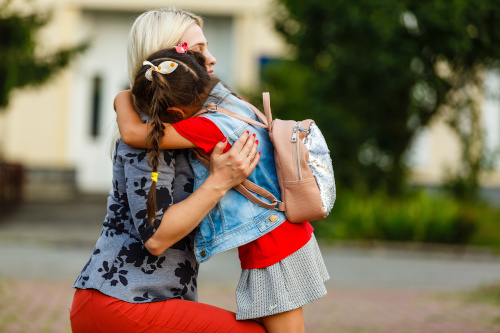It is an unacceptable reality that educators, parents, and caregivers must talk to children about gun violence in schools, repeatedly, in the wake of school shootings.
At the same time as stakeholders once again demand that lawmakers take action and protect the nation’s children while they are in classrooms–classrooms that are supposed to be safe–educators and caregivers are left with the heavy burden of addressing students’ anxieties and responses to trauma.
Conversations around school violence may feel uncomfortable, but many experts say open and clear communication can help students process what happened and feel safe in their classrooms, homes, and communities.
1. DotCom Therapy advises that educators keep discussions age-appropriate, acknowledge and validate students’ feelings, reaffirm their safety, keep to a normal schedule, monitor news and adult conversations, and take care of themselves as well.
2. The National Association of School Psychologists has resources to help educators respond to school violence and and reinforce school safety. These steps include clear communication, crisis training and professional development, and highlighting school violence prevention measures. Resources also include conversation starters and key points to include when talking to students about school violence.
3. The American Psychological Association offers a number of tips for parents to discuss school trauma with their children–tips that educators can pass on to parents or can adapt for their schools and classrooms. Children often find home to be their safe space when they’re overwhelmed or when the world is upsetting. They might go home in search of a safe feeling, and educators and parents can work together to make classrooms and homes feel as safe and reassuring as possible.
4. This resource from Common Sense Media breaks down advice by age range and includes a number of tips and safe ways to broach the topic of school violence.
5. The National Center for School Crisis and Bereavement helps educators and parents work through school violence with students. Parents and teachers can begin by asking students what they understand about the events, telling the truth, and listening.
6. The American School Counselor Association offers myriad resources on school violence, including what to do in the days immediately following a school shooting and how to help students work through their feelings.
- Friday 5: Universal Design for Learning - April 19, 2024
- Educators love their edtech, but want more training - April 18, 2024
- Friday 5: College and career readiness - April 12, 2024


